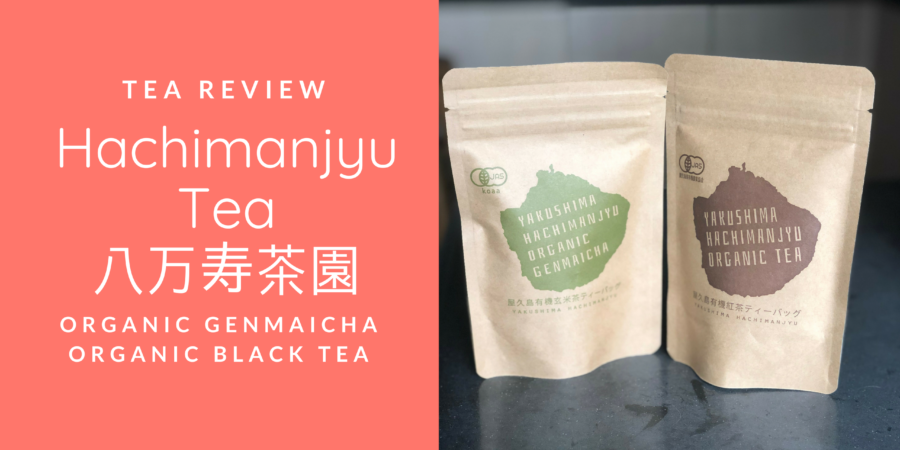I have been longing to try these teas since we got them on teapasar (full disclaimer: I work for teapasar. But I paid for my teas because I am genuinely excited about them and I’m doing this in my non-work time). Especially since one of my colleagues got the green tea and it was fantastic – with grassy and umami notes. But with the ban on tea buying at home, I didn’t have an opportunity to purchase them until this week.
These teas are from Hachimanjyu Tea farm, located on Yakushima island in Kagoshima prefecture. If you’ve watched the movie Princess Mononoke, you might know that Yakushima was one of the inspirations for the setting [1]. For some reason, I’ve never managed to go to Yakushima, although I’ve been to Kagoshima (and Chiran, which is another part of Kagoshima famous for tea), so that’s on my travel list. For now, I have to be content with ‘visiting’ the place through its tea.
Hachimanjyu Tea uses JAS-approved farming methods and have never used pesticides or artificial fertilisers. Instead, if a tea plant gets infected, they either remove the insects by hand or they remove the infected branch. It’s truly natural farming and the description of their farm, combined with the description of Yakushima, makes me wish I could take off to Japan.
Organic Yakushima Genmaicha
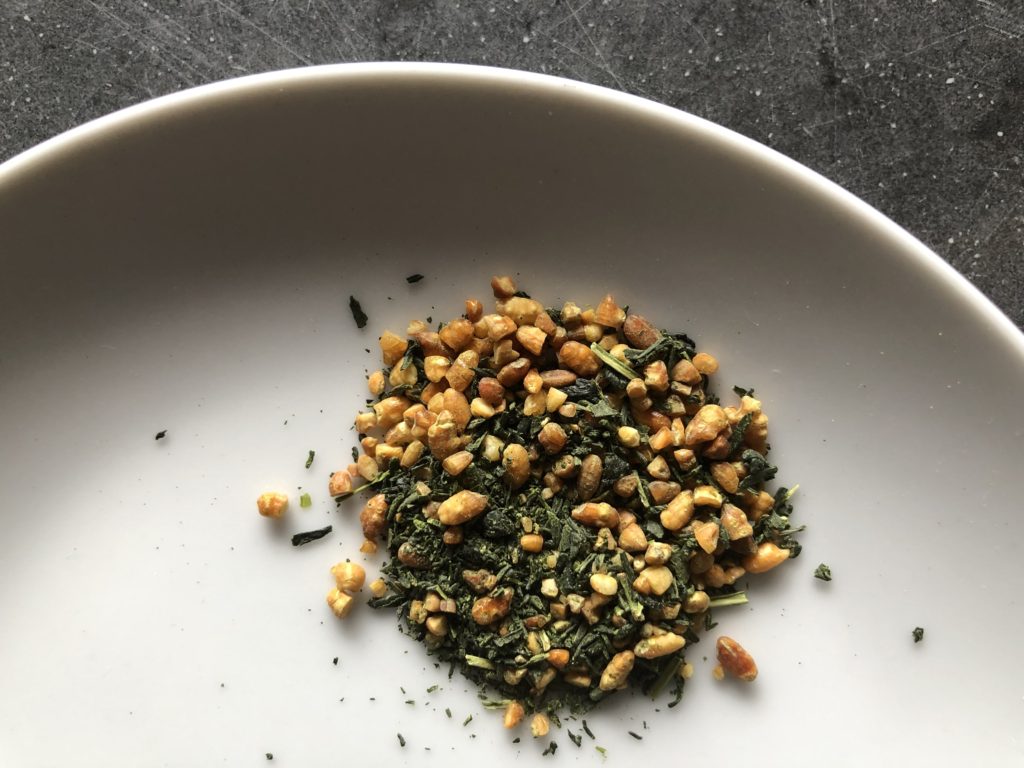
Description:
“This genmaicha is created using our finest first flush green tea and JAS organic-certified rice from Kumamoto. Enjoy the fragrance of green tea mingled with roasted rice. This tea was grown, harvested, and processed in Yakushima, a UNESCO World Heritage Site known for its natural beauty. Due to the use of JAS organic-approved methods, the farm has never used pesticides or artificial fertilisers since its opening.”
The leaves for the genmaicha were a brilliant green and the rice is a beautiful brown.
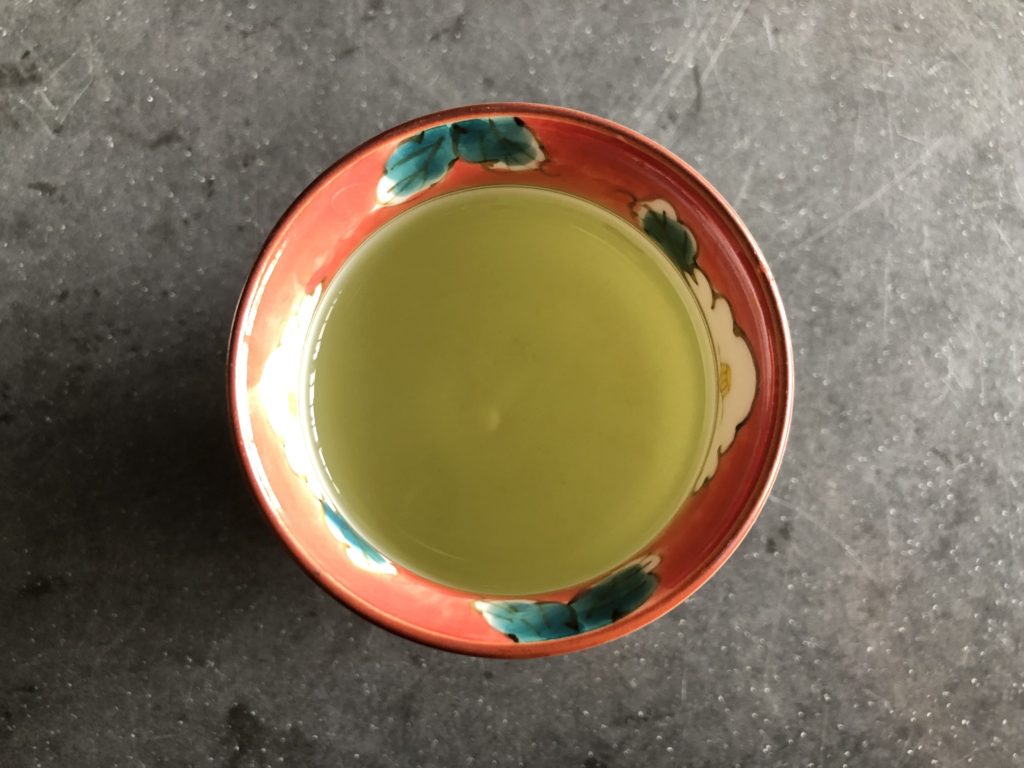
When brewed, the tea liquor is a pale green and there was a warm toasty scent – probably from the rice. I could taste the sweetness of rice and notes of seaweed (the image in my head is the dried/toasted seaweed that you can find as a snack) and umami from the green tea. The astringency wasn’t very high but aftertaste of the tea is pretty strong and I like how it toasty rice and seaweed notes stayed in my mouth. This is a very comforting tea for me because I drank so much genmaicha in Japan and this evokes so many memories.
Organic Yakushima Black Tea
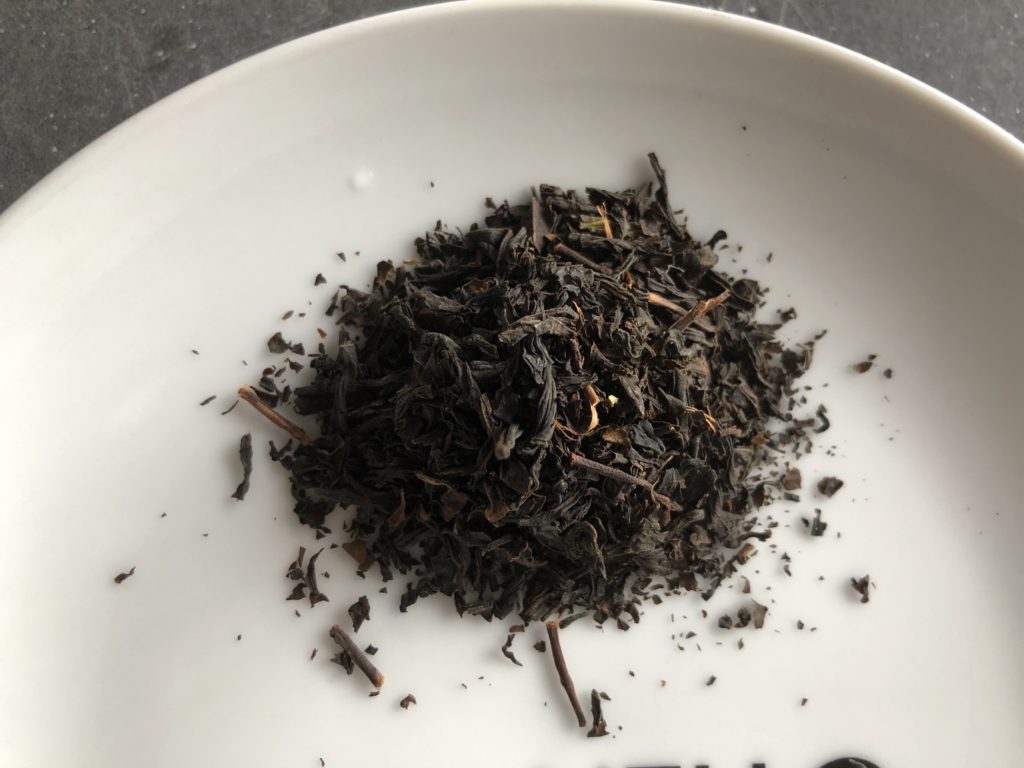
Description:
“A black tea made from the summer harvest. This tea has very little astringency and a subtle sweetness. This tea was grown, harvested, and processed in Yakushima, a UNESCO World Heritage Site known for its natural beauty.”
This is the tea that I was more excited before because Japan doesn’t have a history of black teas, which means you’re more likely to find a unique black tea. The leaves here were moderately sized – they look like leaves broken into larger pieces. I’m not too sure if this is how it’s supposed to be or if it’s because I got the tea bag version (since I bought this using the excuse I would share with my sister and she prefers tea bags). The dry leaves have a sweet woody scent that immediately reminded me of the Hida second flush black tea.
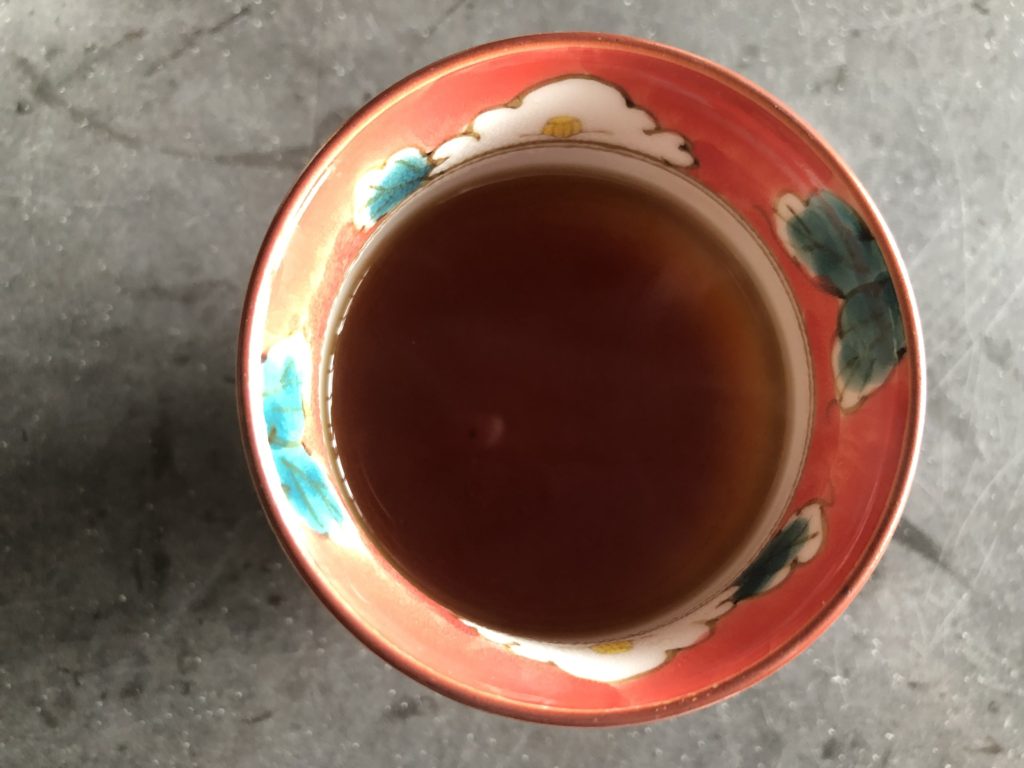
Brewed, the tea liquor had a nice dark red colour and smelled pretty much like the dry leaves. Apart from the woody notes, I could taste some grassy notes as well. There was some sweetness, not too much, but enough to be felt. The astringency was on the low end but there was enough to give the tea some body. There was also a hint of bitterness that added some depth to the tea. Like the genmaicha, the black tea was strong enough to linger pleasantly in the mouth after it was drunk yet seems pretty gentle on the stomach. After drinking this, I was also reminded of the Jane Austen Blend.
I started trying these teas expecting the black tea to be a clear favourite, but I ended up liking both equally. The black tea is definitely to my liking, but I found myself unexpectedly charmed by the genmaicha – I know it started of as what is essentially B級 tea[2] but it’s just so ubiquitous now and I feel it’s a huge part of foodie life in Japan. Done right, with good quality green tea and rice, the genmaicha is a comforting and great tasting tea that brought back memories of good times in Japan.
Links & Notes
If you’re located out of Japan, you can find their teas on Yunomi.Life
If you’re in Japan, you can get the tea directly from their website.
[1] If you want to read more about Yakushima, I found this article on Japan-guide.com
[2] B級 is translated as “B-class” normally used as a reference for food that isn’t considered very refined. I don’t think I’ve seen it used for tea, but given that genmaicha started out as a “people’s tea”, with the rice used as filler, I think it fits the bill. If you want to read more about B級 food, Japan Times has a great article.
